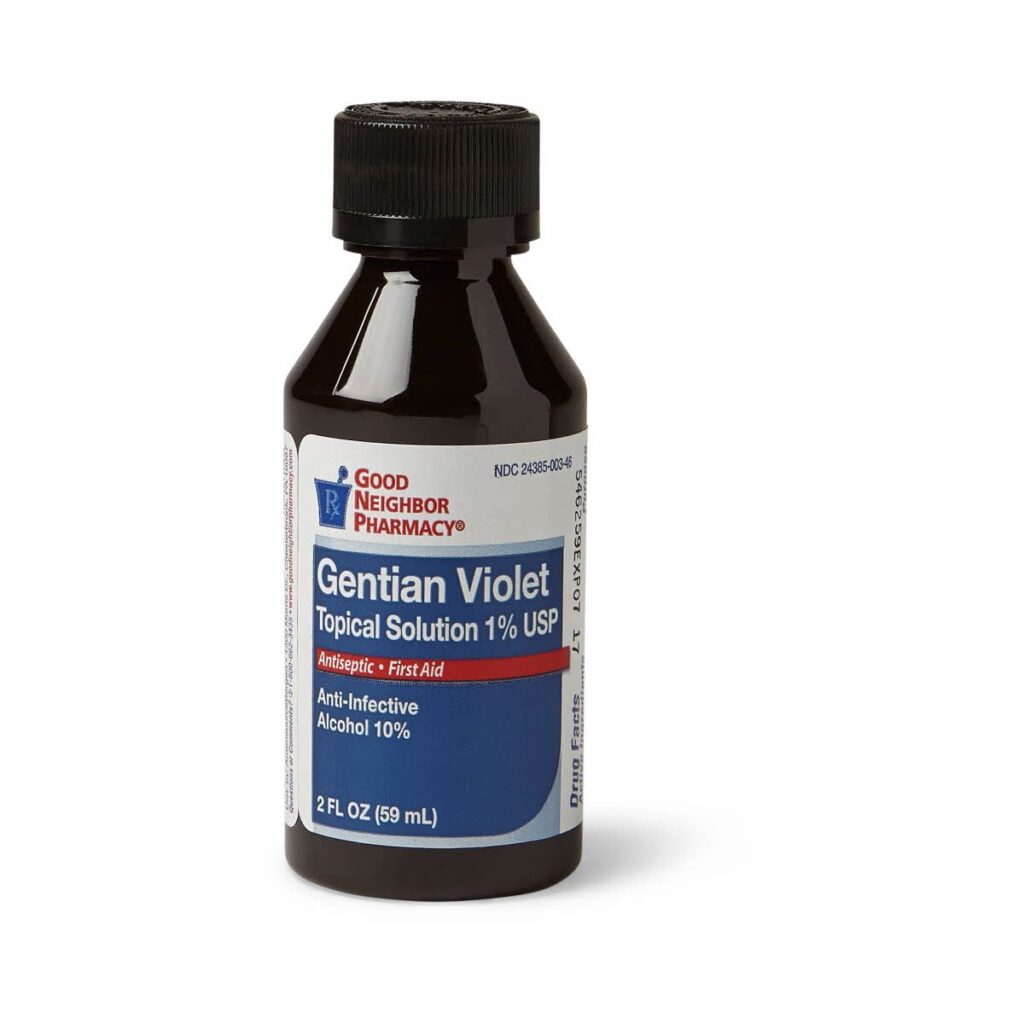🟣 Methylrosanilinium Chloride (Gentian Violet) Topical Preparation (0.25% to 2%)
📌 1. Prescription / Indication:
Mild skin infections
- Fungal infections such as candidiasis, ringworm, athlete’s foot
- Oral thrush (for mucosal application)
- Umbilical cord care in neonates (in some regions)
- Minor cuts, burns, and abrasions
📄 2. Description:
- Methylrosanilinium chloride is the active component, commonly known as Gentian Violet
- Available in concentrations from 0.25% to 2% w/v
- A dark violet-colored solution or paint, applied directly to affected skin/mucosal areas
🔬 3. Nature / Class:
- Class: Antiseptic dye / Triphenylmethane derivative
- Mechanism: Disrupts microbial DNA and inhibits cell wall synthesis
- Antimicrobial spectrum: Active against:
- Gram-positive bacteria (e.g., Staphylococcus, Streptococcus)
- Fungi, especially Candida albicans
🌟 4. Advantages:
- Broad antimicrobial action
- Useful in low-resource settings
- Effective in topical candidiasis, especially oral or diaper rash
- Low cost and stable
- Can be used when azole antifungals are contraindicated or unavailable
📦 5. Common Packaging:
- Glass or plastic bottles with:
- Dropper
- Brush
- Cotton-tipped applicator
- Volume: 10 mL, 25 mL, 50 mL
- Sometimes labeled as “Gentian Violet Solution” or “Paint“
🧊 6. Storage:
- Store in a cool, dry place
- Protect from light (solution degrades with UV exposure)
- Tightly closed container to avoid oxidation
- Avoid contact with metal to prevent chemical reactions
👩⚕️ 7. Patient Advice:
- For external use only
- Stains skin, nails, clothing, and surfaces – handle with care
- Apply with cotton or swab directly to lesion
- Avoid use on large, open wounds or deep puncture wounds
- Do not ingest or use in the eyes
- For oral use (thrush): apply sparingly and avoid swallowing
- Discontinue if irritation or hypersensitivity develops
🎯 8. Purpose / Uses:
| Condition | Use/Benefit |
|---|---|
| Oral thrush | Applied inside mouth with swab, especially in infants |
| Diaper rash (candida) | Safe antifungal for infants |
| Ringworm / Tinea | Effective against dermatophytes |
| Cuts & abrasions | Prevents bacterial colonization |
| Umbilical cord care | Used in neonates in some guidelines for dry cord care |
⚠️ 9. Precautions / Warnings:
- Avoid long-term use — potential carcinogenicity with prolonged exposure (data mostly animal-based)
- Should not be used internally, in the eyes, or in large quantities
- Use with caution in pregnancy and breastfeeding
- Can cause local irritation, burning, or allergic reactions
- Avoid use on mucous membranes unless directed by a physician

